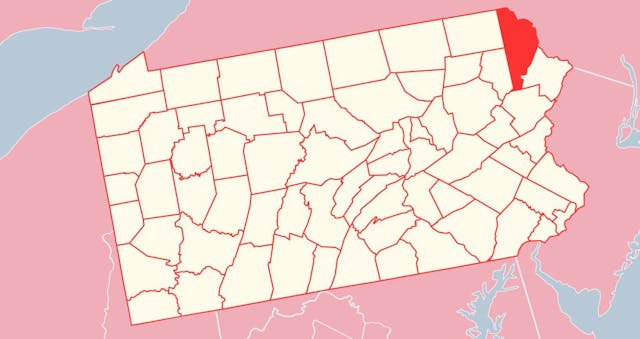Rehabs in Wayne
Wayne County was formed in the state of Pennsylvania, US, on March 21, 1798. As of the census, the population was 51,155 in 2020.
According to statistics, 30% of the population abused alcohol from 2016 to 2020. 33 people died from overdoses of drugs during 2018-2020.
Compared to other provinces, Wayne had average statistical data on substance use. Yet, with their high levels of programs and compassionate medical team, Wayne County rehabs heal, care and support each member of society.
Drug and Alcohol Evaluation
Individuals, during appointments, first meet with medical professionals from various fields. They run an intake evaluation that involves an interview. In short, medical staff assesses a patient’s medical history, current health condition, and situation of substance use.
This helps each person get a treatment plan that is right for them.
Rehab Programs in Wayne County
Rehabs in Wayne County offer luxury and specialty services for everyone. They provide all stages of recovery, applying different methods according to age and gender groups.
Detox
Long-term substance addiction treatment begins with detox. It is dangerous, especially when the individual stops using alcohol and certain drugs. Therefore, detox requires a professional approach. Generally, specialty clinics conduct it. An experienced medical team reduces relapse risk and ensures the transition into a basic cure.
Inpatient (IP)
When withdrawal symptoms are reduced, patients are ready to start residential care (IP). They are fully immersed in the healing regimen here.
People get wellness, social acceptance, life skills, and nutrition. They also learn what family values are and how to take financial responsibility.
IP lasts 30, 60, and 90 days, which can be extended and provide additional sober living facilities.
Avenues Recovery Community is a luxury rehab center that provides comprehensive care. It specializes in detox and residential services. Along with this, the center offers evaluation and all outpatient plans.
Outpatient (OP)
OP provides a flexible schedule that includes one in-person and one group meeting once per week. It helps members to have further growth. Doctors tailor healing plans for each patient. It promotes them to a healthy balance of life and recovery.
The duration of each person's stay depends on their specific needs.
Intensive Outpatient (IOP)
IOP is the next stage of substance abuse cure. It consists of counseling and intensive clinical therapy. People continue their recovery journey while continuing to fulfill their duties.
Patients attend clinics three days for 3-4 hours per week. The suggested healing course lasts about 90 days.
Partial Hospitalization Program (PHP)
PHP is the last phase of outpatient programs. Patients can receive treatment but stay at their homes. It allows them to live in homes while they take healing courses. PHP takes place five days for five weeks per day.
As a structured plan, it includes holistic, group, and individual therapies, evidenced-based healing, and recreational activities. Doctors also actively involve families to make the recovery more targeted.
Specialty Rehab Centers
Little Creek Recovery is a specialty center that provides residential (IP) care only for men. Thus, it offers all OP types for everyone.
The center includes various therapies and counseling focusing more on music and yoga. Additionally, it also involves families as a support for their loved ones.
Prices for Luxury Services
Costs of high-class services vary depending on the facility and chosen program. For instance, in this province, residential rehab costs $15,000 for 30 days.
The fee for detoxification is $600-$1,000.
IOP starts from $3,000 monthly, while OP costs $5,000 for three months.
Thus, if the treatment duration lasts longer than was fixed, the fees get higher. For that reason, clinics accept health insurance. Otherwise, patients should find other ways to pay the fees.
Forcing Teens Into Rehabilitation
Parents do not need to force their teens to addiction centers anymore. The laws of PA allow involuntary commitment of minors into treatment. Yet, parents should know that intervention from specialists is a better solution. Besides, facilities offer OPs for teens using and tailoring their methods according to the age and needs of minors.

